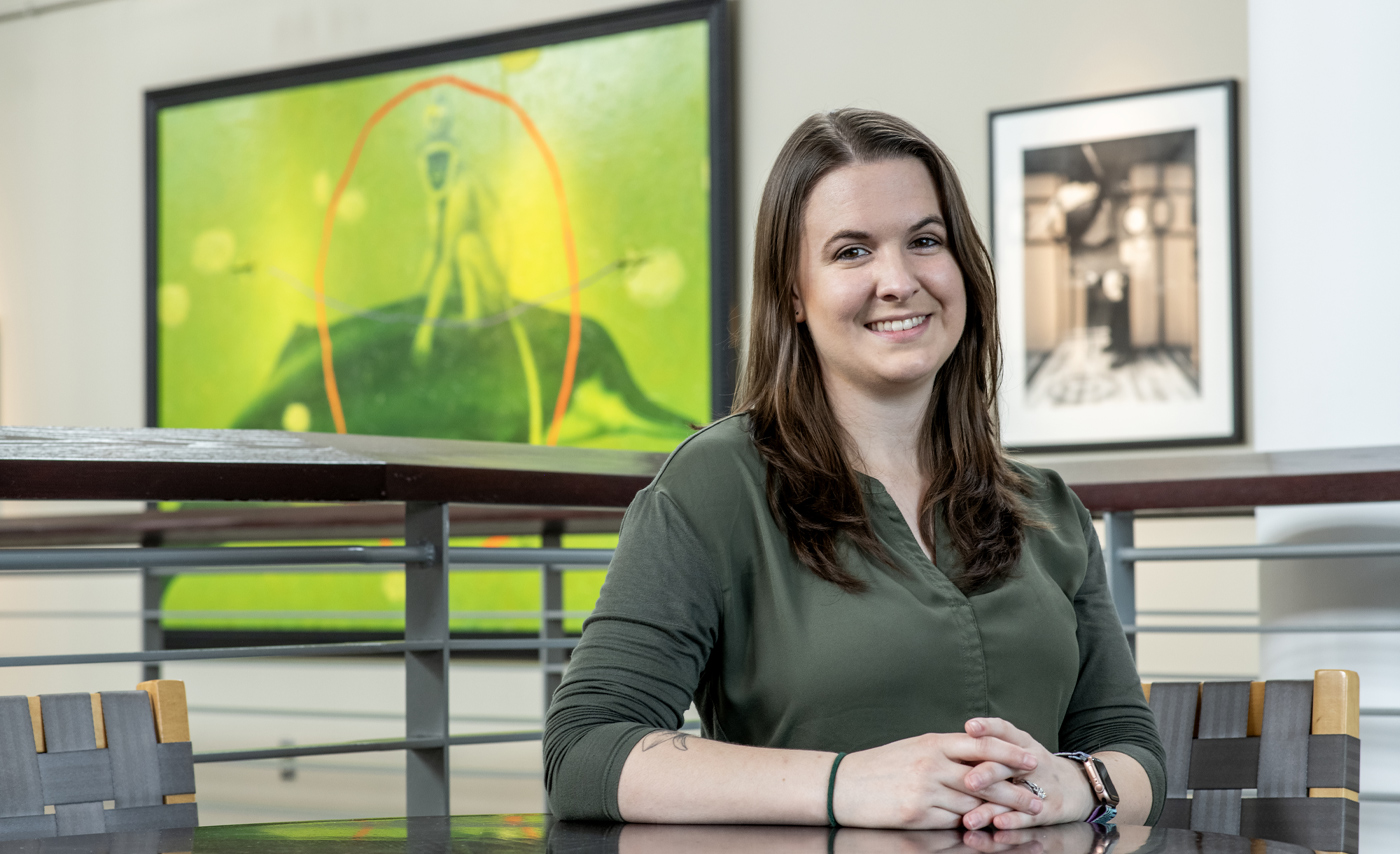Creating a primate sanctuary
Tessa’s student startup is building a haven for monkeys retired from laboratory research or rescued from the pet trade.

When Tessa Cannon speaks to audiences about her nonprofit organization For the Love of Primates, she often sees familiar emotions bubble to the surface.
It’s similar to her first days working in sanctuaries for primates — monkeys and apes — and seeing their struggles but also their personalities for the first time. It’s why she’s dedicated her life to helping primates get rehabilitated after difficult lives.
“It can be heartbreaking,” says Cannon, a PhD anthropology student and founder of For the Love of Primates.
For the Love of Primates, part of the first cohort of the President’s Buckeye Accelerator, is constructing a sanctuary for primates retired from laboratory research or rescued from the pet trade. The group will also collaborate with researchers in the Midwest to create more ethical and sustainable primate retirement practices.
There are very few of these sanctuaries in the U.S. However, there’s a massive need.
Over 100,000 primates are currently used in laboratory research with over 23,000 monkeys and apes being imported into the country every year. Often, these primates are euthanized after the research is finished because there are so few sanctuaries for them.
Following a year in the Buckeye Accelerator — learning from a variety of entrepreneurship mentors and working with like-minded students — along with Ohio State’s SEA Change organization, Cannon’s group is off and running.
FTLOP recently purchased an approximately 60-acre property in Crooksville, Ohio, that will initially be home to around 80 primates. Cannon recently spoke to us about her organization, how Ohio State helped her build it, and its vision.
This is a difficult subject for people to learn about, isn’t it?
It’s a taboo subject. People don’t like to talk about animal experimentation, but if we don’t talk about it, we can’t advocate for these animals.
Unfortunately, it’s a necessary step in a lot of medical testing. For instance, the COVID-19 vaccine was tested on primates before humans. That step in the scientific process is not going away anytime soon, so we need to create good relationships with these organizations and provide a place for primates to go after retirement.
Why is this effort so important to you?
When I first had the opportunity to work in a sanctuary in South Africa, I saw the individual personalities of these primates, that they were clearly conscious, had feelings and were so similar to humans.
I would see these animals hitting themselves or pulling out their own hair because they had this feeling something was wrong and it was the only way they could express it. Drawing on these parallels between human and animal mental health and seeing there were so few people advocating for these animals when they so clearly needed this is what really drove me to do something.
Between building a sanctuary, educational outreach and working with these organizations, is your goal to become a model program?
That’s our hope, to have that impact bigger than our one sanctuary. We want to help develop a sustainable way to retire primates.
If we can show creating these relationships is not only beneficial for the primates but also for the laboratories, it will be easier for sanctuaries to become established in more locations.
You hope someday we wouldn’t be necessary and science would evolve to no longer need to test on primates. But it’s not going to happen in our lifetime. So I would love to see more sanctuaries pop up around the U.S., but it is not for the faint of heart. It’s taken a long time and effort and dedicated people to make it happen and if we can make it easier for people to do the same thing, that would be amazing.
Did you ever think you’d become an entrepreneur?
Definitely not. Before I started this, I had zero business experience, and even though it’s not for profit, it’s truly run like a business so you have to think in that mindset.
The big thing, as a nonprofit, money is not the return on investment for our investors. But we can give back to them in a lot of other ways: Saving them money, that social impact, so being able to change our minds to partnering with major organizations rather than more of a grassroots fundraising model has allowed us to take it to the next level.
How has the Buckeye Accelerator helped?
It’s wonderful. We would not be where we are now without going through it. The funding was helpful but what they taught us, the connections they helped us create, workshopping ideas was even a bigger contribution of our program.
Through this program we also got turned on to the SEA Change program that was the one we just participated in, which was great as well. The connections we’ve made have been the biggest help through this program.
My knowledge has grown so much throughout the entire process, it’s helped us create something really sustainable and we’re going to be in a stronger position after this is done.